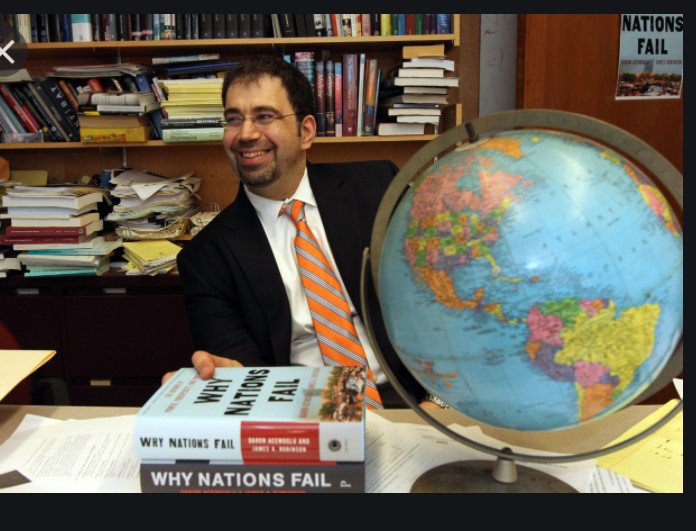Turkey’s economy is in the middle of a crisis and the situation could worsen because of mismanagement, uncertainty about the lira and the financial troubles of companies, said Daron Acemoğlu, a professor of economics at the Massachusetts Institute of Technology (MIT).
WATCH: Turkish Economy IS in Crisis | Real Turkey
“Of course I have a great fear of this,” Acemoğlu said in an interview when asked about the possibility that the crisis could deepen, the T24 news website reported. “The chances are high. We haven’t realised the extent of the problems.”
Acemoğlu pointed to a slump in the central bank’s foreign currency reserves – net reserves stand at almost minus $50 billion – and the fragility of the lira. The lira has lost almost 15 percent against the dollar since mid-March and 55 percent since the start of 2018, when a currency crisis began sweeping through the economy
“In Turkey we are looking at what will happen today or tomorrow, what the exchange rate will be because there is really a crisis situation,” he said. “People are unemployed, people don’t know if they will be able to pay their debts tomorrow.
“Of course, this has a big impact on Turkey but it has a far more negative effect. We cannot think about the future in the right way and make the correct preparations. The world will change a lot in the next 10 years and countries that adapt to this change will have great growth opportunities, but those who cannot adapt will be in a much worse situation.”
Acemoğlu pointed to the government, saying those managing the economy under former Treasury and Finance Minister Berat Albayrak, who resigned in November, failed to implement the correct policies to put Turkey on a firm footing. Albayrak is the son-in-law of President Recep Tayyip Erdoğan.
Foreign investors have criticised Albayrak for implementing unorthodox economic policies, which included forcing the central bank to keep interest rates at below annual inflation and spending tens of billions of dollars of its foreign currency reserves defending the lira. Opposition politicians claim $128 billion was lost, a charge the government denies.
Erdoğan replaced the central bank’s governor in November, but then sacked his successor four months later after he hiked interest rates to 19 percent from 10.25 percent to defend the lira and rein in double-digit inflation. Annual inflation in Turkey stands at 17.1 percent.
Acemoğlu said the introduction of the presidential system in Turkey in 2018 had had a big impact on economic policy, because it centred decision-making in the presidential palace. Democracies, he said, had a great advantage over dictatorships because there was far less possibility of allowing unqualified, inexperienced people to remain in office.
“Shops in shopping malls and construction companies, which have had big balance sheet problems for five years, are still standing. How long can they survive? What will the effects of these have on banks? While our foreign currency reserves have decreased so much, how much longer will we be able to keep interest rate policy this way?”
Acemoğlu said the situation at Turkey’s banks was worse than it appeared.
You can follow our English language YouTube videos @ REAL TURKEY: https://www.youtube.com/channel/UCKpFJB4GFiNkhmpVZQ_d9Rg
And content at Twitter: @AtillaEng
Facebook: Real Turkey Channel: https://www.facebook.com/realturkeychannel/

